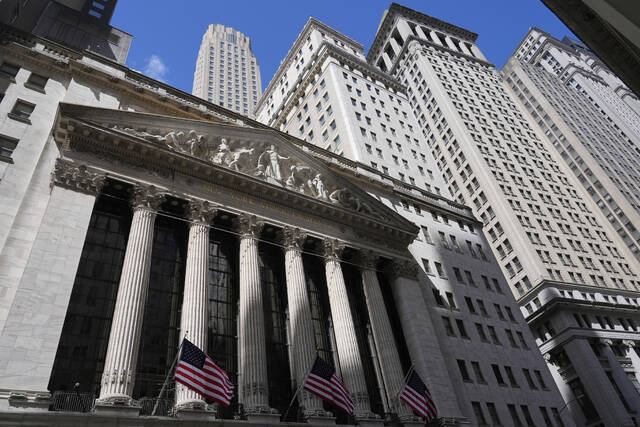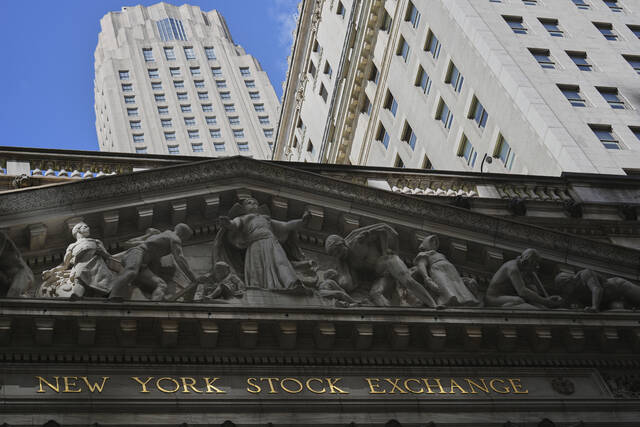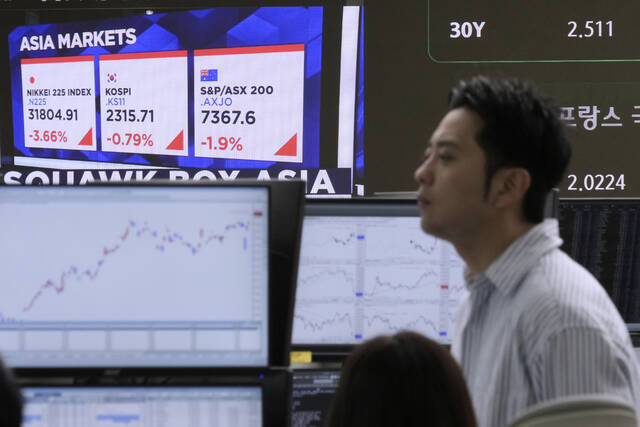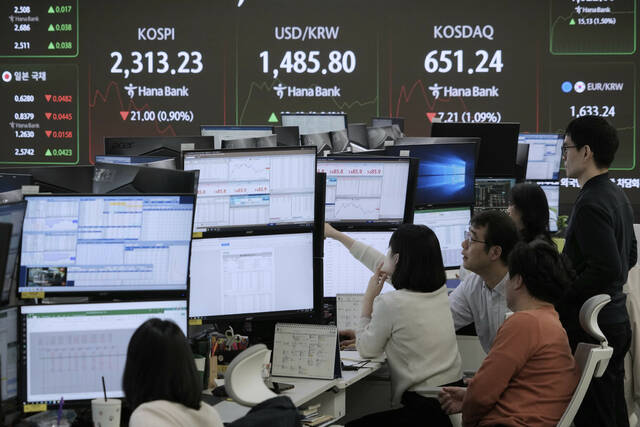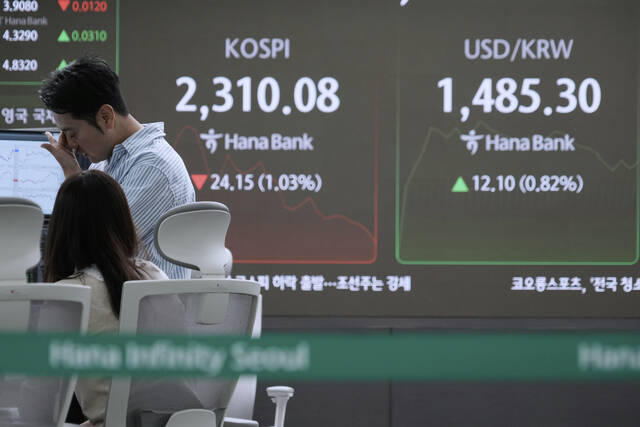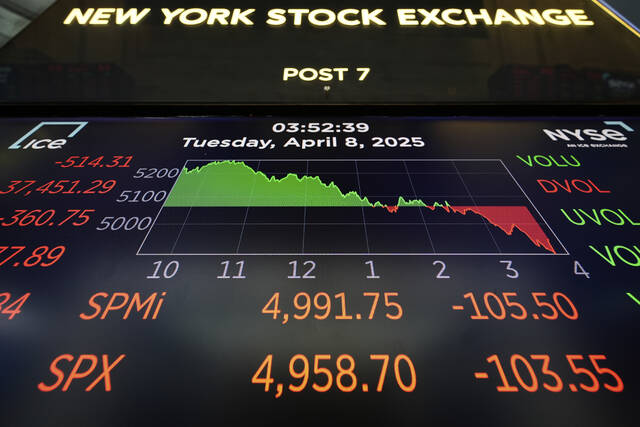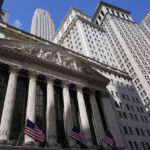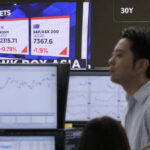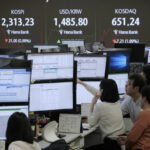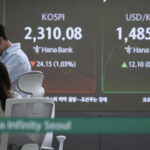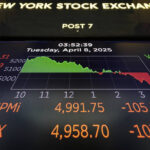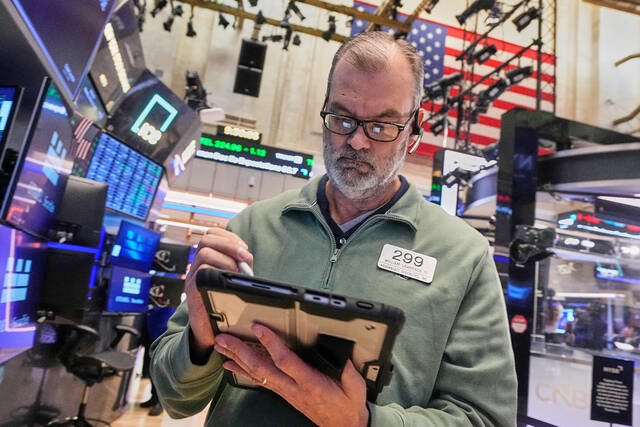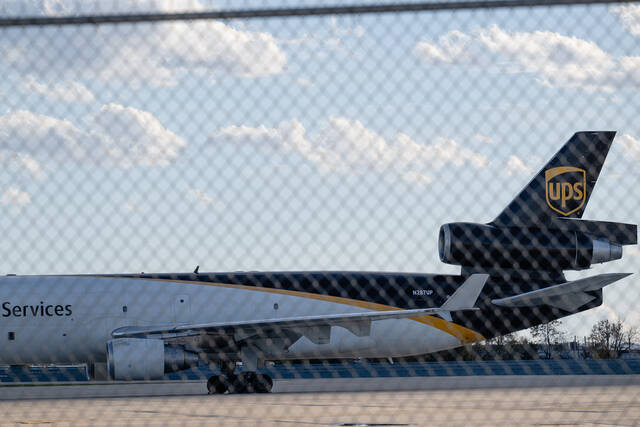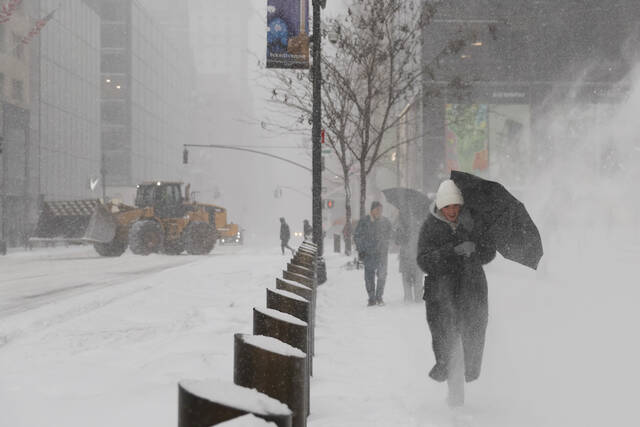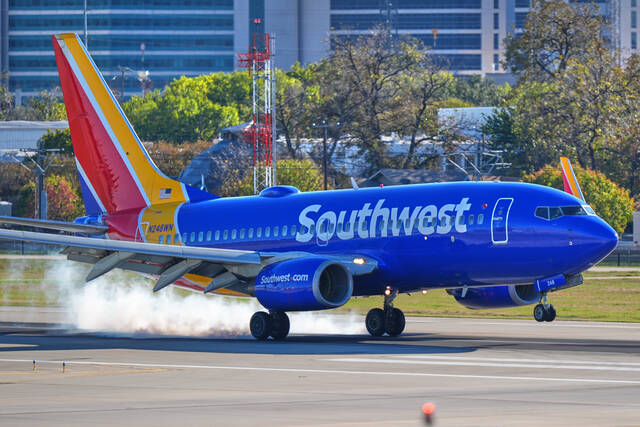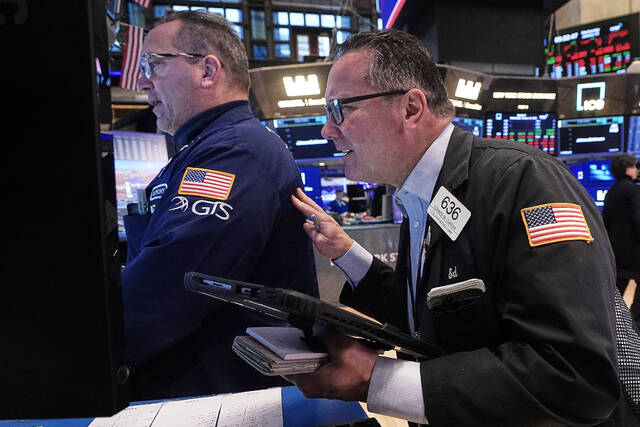BANGKOK — Asian shares sank again on Wednesday as the latest set of U.S. tariffs, including a 104% levy on Chinese imports, went into effect.
Japan’s Nikkei 225 index initially lost nearly 4% and markets elsewhere in the region also declined.
On Tuesday, the S&P 500 dropped 1.6% after wiping out an early gain of 4.1%. That took it nearly 19% below its record set in February. The Dow Jones Industrial Average dropped 0.8%, while the Nasdaq composite lost 2.1%. Uncertainty is still high about what President Donald Trump will do with his trade war.
The sharply higher tariffs were scheduled to kick in after midnight Eastern time in the U.S., and investors have no idea what to make of President Donald Trump’s trade war.
The retreat overnight and into early Wednesday in Asia followed rallies for stocks globally earlier in the day, with indexes up 6% in Tokyo, 2.5% in Paris and 1.6% in Shanghai.
The Nikkei 225 in Tokyo fell more than 3.9% before leveling off. About an hour after the market opened it was down 2.7% at 32,114.65.
In Hong Kong, the Hang Seng lost 1.8% to 19,771.69, while the Shanghai Composite index edged just a few points lower, to 3,145.18.
South Korea’s Kospi lost 0.6% to 2,321.42, while the S&P/ASX 200 in Australia declined 1% to 7,436.90. Shares in New Zealand also fell.
Analysts have been warning to expect more swings up and down for financial markets given the uncertainty over how long Trump will keep the stiff tariffs on imports, which will raise prices for U.S. shoppers and slow the economy. If they last a long time, economists and investors expect them to cause a recession. If Trump lowers them through negotiations relatively quickly, the worst-case scenario might be avoided.
Hope still remains on Wall Street that negotiations may be possible, which helped drive the morning’s rally. Trump said Tuesday that a conversation with South Korea’s acting president helped them reach the “confines and probability of a great DEAL for both countries.”
On Tuesday, Japanese stocks led global markets higher after the country’s prime minister, Shigeru Ishiba, appointed his trade negotiator for talks with the United States following a conversation with Trump.
China said it will “fight to the end” and warned of countermeasures after Trump threatened on Monday to raise his tariffs even further on the world’s second-largest economy.
White House press secretary Karoline Leavitt said Tuesday that Trump’s threats of even higher tariffs on China will become reality after midnight, when imports from China will be taxed at a stunning 104% rate.
That would coincide with Trump’s latest set of broad tariffs, which are scheduled to kick in at 12:01 a.m. And Trump has made clear that he does not intend to have any exemptions or exclusions, according to the top U.S. trade negotiator, Jamieson Greer.
The U.S. trade representative also said in testimony before a Senate committee that roughly 50 countries have already been in contact, and he’s told them: “If you have a better idea to achieve reciprocity and to get our trade deficit down, we want to talk with you, we want to negotiate with you.”
Trump’s trade war is an attack on the globalization that’s shaped the world’s economy and helped bring down prices for products on store shelves but also caused manufacturing jobs to leave for other countries. Trump has said he wants to narrow trade deficits, which measure how much more the United States imports from other countries than it sends to them as exports.
In other dealings early Wednesday, U.S. benchmark crude oil fell $2 to $57.58 per barrel. Brent crude, the international standard, shed $1.98 to $60.84 per barrel.
The U.S. dollar fell to 145.76 Japanese yen from 146.29 yen. The euro rose to $1.1010 from $1.0995.
The price of gold rose $28 to $3,018 an ounce.



